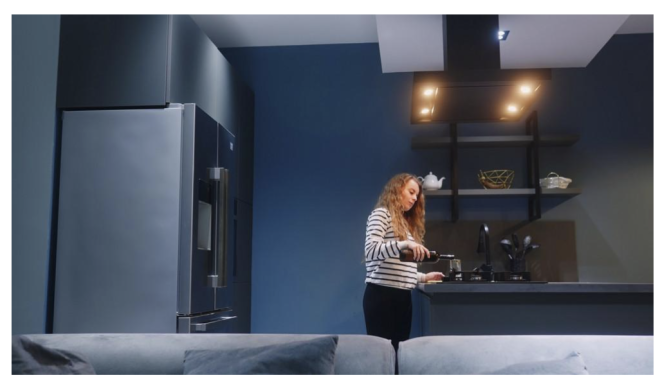- Change theme
Smarter Homes, Bigger Savings: How Appliances, Insulation, and Cleaning Choices Impact Today’s Households

In today's fast-paced world, smart appliances are becoming increasingly popular among homeowners.
00:54 08 June 2025
The Rise of Smart Appliances
In today's fast-paced world, smart appliances are becoming increasingly popular among homeowners. These innovative devices bring convenience and efficiency to everyday tasks. However, the adoption rate is still relatively low. According to Statistica, only about 10% of U.S. households own a smart appliance. This indicates a significant potential for growth as more people recognize the benefits of these cutting-edge technologies.
Smart appliances offer various features that can revolutionize household management. For instance, refrigerators with touch screens allow users to check grocery inventories and automatically update shopping lists. Additionally, smart ovens can be preheated remotely, ensuring meals are ready at the perfect time. Despite the initial cost, these devices can lead to substantial long-term savings by reducing energy consumption. Thus, the investment in smart appliances is becoming an attractive option for tech-savvy homeowners.
The benefits of integrating smart technology extend beyond mere convenience. Energy efficiency is a key advantage of upgrading to smart appliances. These devices are designed to use resources judiciously, significantly cutting down on energy bills. As more households migrate towards smarter technologies, the cumulative impact on energy savings could be substantial. For those considering renovations or new purchases, investing in smart appliances may prove to be a worthwhile decision.
Insulation and Energy Efficiency
Proper insulation and air sealing are essential components of an energy-efficient home. By ensuring that homes are well-insulated, owners can prevent heat loss during winter and maintain cooler interiors in summer. According to Energy Star, homeowners can save an average of 15% on heating and cooling costs by focusing on insulation improvements. These changes not only cut energy expenses but also increase indoor comfort levels. Investing in home insulation is a practical step towards achieving a sustainable household.
Insulating attics and crawl spaces is particularly crucial in maintaining a home’s thermal envelope. Without adequate insulation in these areas, homes become susceptible to extreme temperature fluctuations. By addressing these zones, homeowners can ensure even temperature distribution throughout the house. This enhances the functionality of heating and cooling systems, allowing them to operate more efficiently. Hence, the investment in proper insulation translates to reduced wear and tear on these critical household systems.
Beyond cost savings, improved insulation contributes to environmental sustainability. By reducing energy consumption, households can decrease their carbon footprint. This aligns with global efforts to mitigate climate change impacts. As a result, insulated homes not only benefit occupants financially but also contribute to broader ecological conservation. Homeowners looking to make environmentally friendly upgrades should consider insulation improvements as a priority.
Cleaning Choices and Their Impacts
The decision between hiring cleaning services and maintaining a home independently presents various considerations. Although convenience is a significant factor, financial implications cannot be overlooked. According to Trafft, a mere 3% of households opt for professional cleaning services. For many, the costs associated with such services prove to be a limitation. Consequently, understanding the economics of cleaning choices is vital for cost-conscious homeowners.
Many people find solace in routine cleaning as a cost-effective way to maintain a home. DIY cleaning approaches allow homeowners to tailor schedules and methods according to personal preferences. However, these tasks can be demanding and time-consuming for individuals with hectic lifestyles. Despite these challenges, some people enjoy the sense of achievement that comes from maintaining their space. For those unable to balance cleaning tasks with other responsibilities, deciding to hire help might be beneficial.
Choosing eco-friendly cleaning solutions is another impactful decision for homeowners. By selecting biodegradable and non-toxic cleaning agents, households contribute to healthier indoor environments. This choice results in lower health risks for occupants and diminished environmental pollution. The market offers numerous sustainable cleaning brands that prioritize safety and efficacy. Committing to eco-conscious cleaning practices embodies a broader commitment to sustainable living.
In conclusion, as technology and sustainable practices evolve, homeowners have access to numerous strategies for making their households smarter and more efficient. Whether by adopting smart appliances, enhancing insulation, or making informed cleaning choices, each decision contributes to overall savings and an improved quality of life. Embracing these options can lead to significant long-term benefits, both economically and environmentally. It is incumbent upon every homeowner to consider these modern conveniences to better their living spaces.
